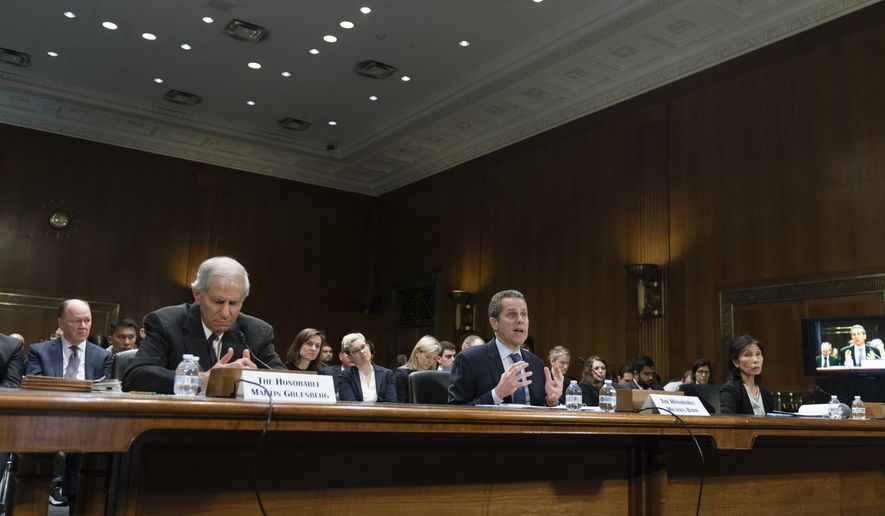The top banking regulator at the Federal Reserve told Congress on Tuesday that Silicon Valley Bank failed due to mismanagement, while lawmakers on the Senate Banking Committee blamed federal regulators for being caught unprepared by the nation’s second-largest bank collapse.
Michael Barr, the Fed’s vice chairman for banking supervision, said mismanagement at SVB was the primary cause for its collapse on March 10. He also told lawmakers that the run on the bank was larger than first reported, with depositors trying to withdraw $142 billion over two days.
“Fundamentally, the bank failed because its management failed to appropriately address clear interest-rate risk and clear liquidity risk,” Mr. Barr testified. He said supervisors of the bank identified those concerns as early as November 2021.
But lawmakers in both parties criticized the Fed and the Federal Deposit Insurance Corp. for failing to act earlier to prevent the collapse.
“It looks to me like the regulators knew the problem but nobody dropped the hammer,” said Sen. Jon Tester, Montana Democrat.
Sen. Tim Scott, the top Republican on the Senate Banking, Housing and Urban Affairs Committee, said, “By all accounts, our regulators appear to have been asleep at the wheel.”
Mr. Barr criticized SVB’s lack of a chief risk officer and its poor planning for rising interest rates that caused its assets to decline in value. “Essentially, the risk model was not at all aligned with reality,” he said.
The failure of SVB, which had assets late last year of $209 billion, and of Signature Bank in New York led to widespread concerns about the safety of deposits at banks nationwide. The Fed, the FDIC and the Treasury Department worked out an emergency deal to guarantee customers’ deposits beyond the normal $250,000 limit.
About 88% of deposits at SVB and about 90% of Signature’s deposits were uninsured at the end of 2022, said FDIC Chairman Martin Gruenberg.
Treasury Secretary Janet Yellen and other federal officials have said the U.S. banking system is sound.
The Senate hearing Tuesday was the first step in Congress of what’s expected to be months of reviews into how the banks failed so rapidly. The Fed and FDIC are preparing reports on the collapses and plan to release them by May 1.
Some of the options lawmakers are considering is to turn the Fed’s inspector general into a post appointed by the president and confirmed by the Senate. Currently, the Fed’s board of governors chooses a watchdog for the central bank.
Also, some lawmakers are proposing to raise the FDIC’s normal deposit insurance limit above the current $250,000.
• Dave Boyer can be reached at dboyer@washingtontimes.com.




Please read our comment policy before commenting.